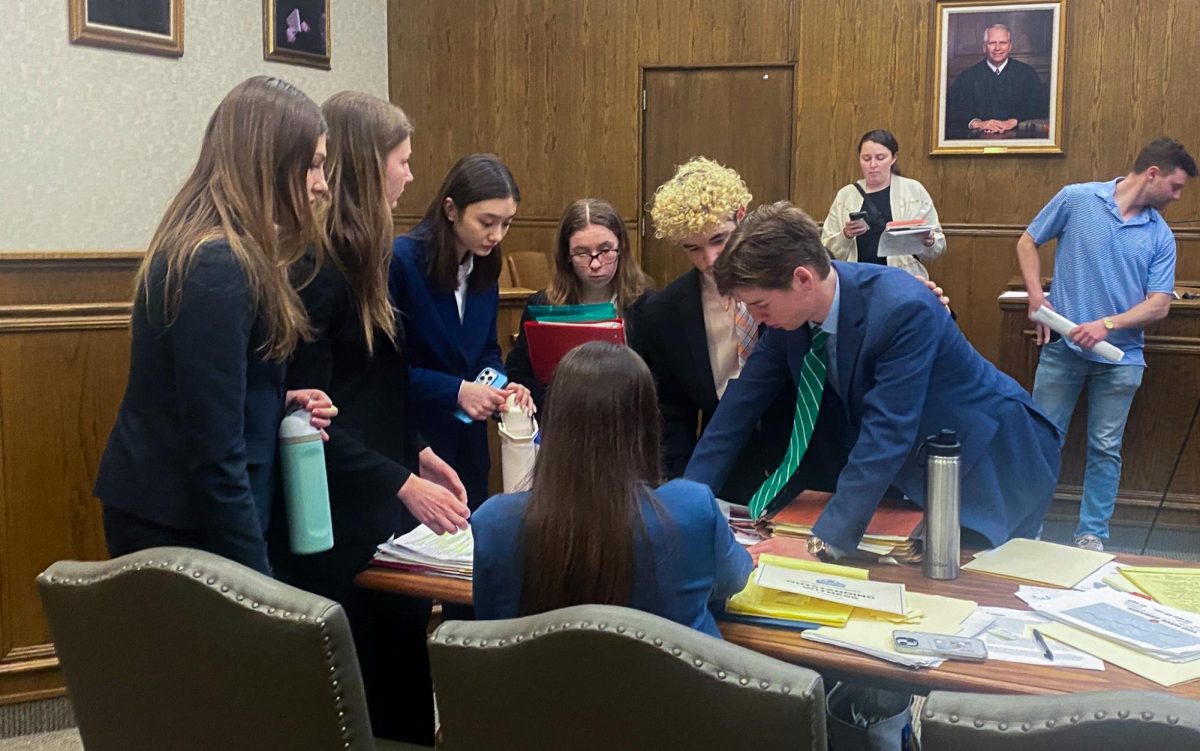When hearing the words Mock Trial most students at Westminster Christian Academy would think about the class. However, on the weekend of March 28, multiple Westminster students attended the state mock trial competition, and were forced to use a completely different name, The West County Advocates. For those who do not know what a mock trial is, it is essentially a fictional court trial where students have to participate as either the prosecution or defense, and either play the role of attorney or witness. Aunika Groat, A junior at Westminster Christian Academy, entered into a long process to have the club officially sanctioned by the school. However, this pursuit ultimately resulted in a “No” from the administration. Groat said:
“Initially we were going to have Mrs. Levar as the coach, but she couldn’t make every meeting, so we were going to have Mrs. Mathis be an assistant coach. The administration told us no […] Eventually they told us they wanted to keep focus on the mock trial class rather than a club.”
After looking more into the situation, the most prevalent reason for administration’s refusal to sponsor the creation of the club was the fact that Kim Mathis, the attorney that was going to serve as the club’s coach, is not a member of the faculty or staff. In fact Matt Seilback, US Bible and Club Coordinator, explained the situation from the administration’s perspective:
“All clubs are started by a student, and then they find a faculty or staff sponsor. In this case we didn’t have a faculty or staff sponsor for it. So we didn’t have the proper support from that side to support it […] While we have athletic coaches, clubs are run differently. We only have those sponsored by faculty or staff, so that’s why she was not able to fill that role.”
While this explanation makes sense, for the sake of the students, this situation could have definitely been resolved in a more productive manner. Mrs. Mathis is a parent of multiple students at Westminster, so it is not like she is completely unaffiliated with the school. As for the financial aspect of a Mock Trial Club, yes, the school would have to pay the expense for the students to go to a state championship, however a state championship is not guaranteed. Groat said:
“Mrs. Mathis offered to coach the team for free, but the administration still said no to letting her coach us.”
So this means that the payment for a coach was already covered, faculty or not, and should not have been a hindrance to the process of establishing the club. Finally, the excuse that the administration wanted to keep the focus on a class is completely absurd. For starters, there are plenty of drama classes along with a drama club. These two programs have never conflicted with one another, so why could the Mock Trial club not coexist with the class?
Another point of interest is that a Mock Trial Club would be extremely beneficial for students hoping to pursue law as a career in the future. One semester of a class is not going to give students the experience they could garner from a year long competitive program. The rejection of a mock trial school may taint how some students approach the formation of a club, especially with the lack of wiggle room that Groat was given regarding a coach. In addition, by not letting these students form a club the school loses an opportunity to advertise towards those students who may be looking to go into law school when they get older.
Controversy aside, the students who participated at the state competition showed out. Although three students had prepared to act as witnesses and had participated in most of the trials up to this point; all three could not participate in the state competition. The club called upon three new students to join them, and use the short timeframe of two weeks in order to prepare to fill in, and play the role of a witness. Each of the new witnesses played their respective role in the trial extremely well leading to wins when it mattered most, and taking them all the way to the semifinals where they unfortunately lost to a school located in Kansas City is a close 2:1 match. Charlie Mathis, son of Mrs. Mathis and only senior on the team, was exceedingly satisfied with the performance of the West County Advocates. He said:
“I am really proud of our team. There are over seventy nine teams that compete in the Saint Louis region alone, not to mention another fifteen or so outside of Saint Louis. Out of almost one hundred teams we finished in the top four. Additionally, as the only non-first year member of the team, I can say with near certainty that most every other team was full of upperclassmen who had been competing in Mock Trial for years on JV teams (yes they exist in Mock Trial). Apart from me, no one on our team had ever competed in the BAMSL (The Bar Association of Metropolitan St. Louis) Mock Trial competition before, and even I was in a different role than I was before. Everyone on our team is very smart, but no one had any experience with this competition before winning state.”
While there were students who were a lot more prepared than others, for the most part just about everyone had such a lack of experience that the West County Advocates were considered underdogs. Other than placing in the third overall at state, another notable moment was when The West County Advocates, ranked number eight, upset the number one ranked team MICDS in a clean 3:0 ballot sweep. Overall despite the setbacks and controversy, the West County Advocates, or as they called themselves, WCA performed to the best of their abilities, and did the unthinkable by placing high with inexperienced players against all odds.









